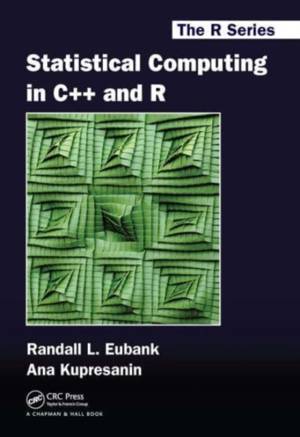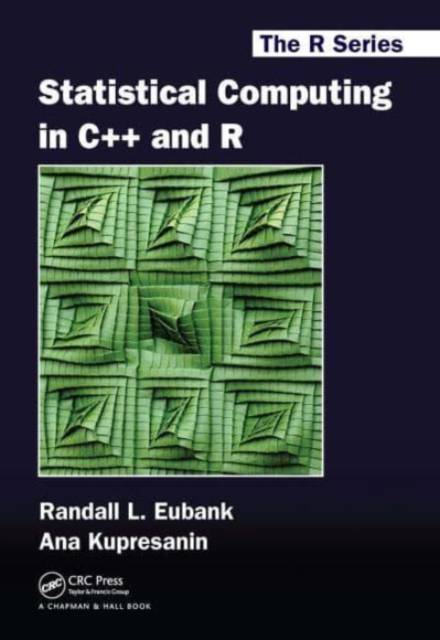
- Afhalen na 1 uur in een winkel met voorraad
- Gratis thuislevering in België vanaf € 30
- Ruim aanbod met 7 miljoen producten
- Afhalen na 1 uur in een winkel met voorraad
- Gratis thuislevering in België vanaf € 30
- Ruim aanbod met 7 miljoen producten
Omschrijving
With the advancement of statistical methodology inextricably linked to the use of computers, new methodological ideas must be translated into usable code and then numerically evaluated relative to competing procedures. In response to this, Statistical Computing in C++ and R concentrates on the writing of code rather than the development and study of numerical algorithms per se. The book discusses code development in C++ and R and the use of these symbiotic languages in unison. It emphasizes that each offers distinct features that, when used in tandem, can take code writing beyond what can be obtained from either language alone.
The text begins with some basics of object-oriented languages, followed by a "boot-camp" on the use of C++ and R. The authors then discuss code development for the solution of specific computational problems that are relevant to statistics including optimization, numerical linear algebra, and random number generation. Later chapters introduce abstract data structures (ADTs) and parallel computing concepts. The appendices cover R and UNIX Shell programming.
Features
- Includes numerous student exercises ranging from elementary to challenging
- Integrates both C++ and R for the solution of statistical computing problems
- Uses C++ code in R and R functions in C++ programs
- Provides downloadable programs, available from the authors' website
The translation of a mathematical problem into its computational analog (or analogs) is a skill that must be learned, like any other, by actively solving relevant problems. The text reveals the basic principles of algorithmic thinking essential to the modern statistician as well as the fundamental skill of communicating with a computer through the use of the computer languages C++ and R. The book lays the foundation for original code development in a research environment.
Specificaties
Betrokkenen
- Auteur(s):
- Uitgeverij:
Inhoud
- Aantal bladzijden:
- 556
- Taal:
- Engels
- Reeks:
Eigenschappen
- Productcode (EAN):
- 9781032477619
- Verschijningsdatum:
- 21/01/2023
- Uitvoering:
- Paperback
- Formaat:
- Trade paperback (VS)
- Afmetingen:
- 178 mm x 254 mm
- Gewicht:
- 1039 g

Alleen bij Standaard Boekhandel
Beoordelingen
We publiceren alleen reviews die voldoen aan de voorwaarden voor reviews. Bekijk onze voorwaarden voor reviews.











